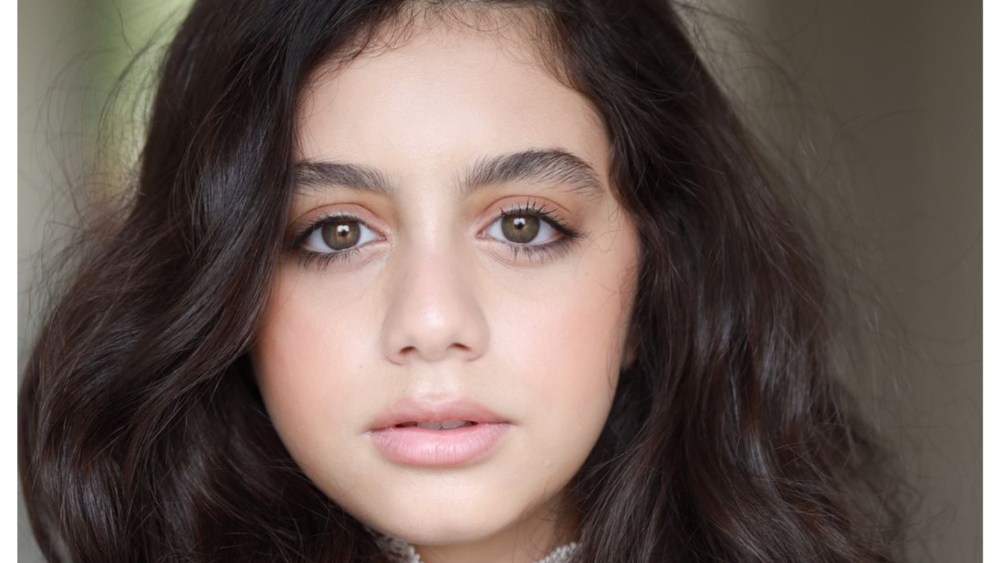‘Finding Ola’ Star Yasmina El-Abd on Female Empowerment
Rising Egyptian star Yasmina El-Abd, whose acting career has been on a roll since she was 12, stands as testimony to the fact that female empowerment is becoming a major theme in the Arab world’s film and TV output.
Born in Switzerland to an Egyptian family, El-Abd studied drama in London and landed her first acting job in the well-received short “The Shadow of Cairo” playing a 12-year-old named Maya who seeks vengeance for her mothers’ death by becoming a superhero of sorts who chases down sexual harassers in Cairo.
A slew of roles have followed, including in Arab patriarchy dramedy “Daughters of Abdul-Rahman”; as well as in HBO Max kids series “Theodosia,” where El-Abd is the only Egyptian cast member and plays one of the leads, Princess Safiya; the groundbreaking Arabic-language musical feature ”Sukkar,” and, of course hit Netflix series “Finding Ola” – the second season of which just dropped – in which she plays Zeina, a surrogate daughter of the show’s happily divorced protagonist.
Yasmina El-Abd – who recently turned 18 and acts and sings in English, French and Arabic – spoke to Variety about her career progression and why, besides being an actor and singer, she’s now ready to become an executive producer.
When did you start realising how important female empowerment is in the stories you play on screen?
Pretty soon. Right after “Shadow of Cairo,” which was significant in terms of spreading awareness about sexual harassment in the Middle East, I sent a self-tape to [director] Zaid Abu Hamdan that ended up working out. In “Daughters of Abdul-Rahman” I played Abdul Rahman’s daughter. My character arc in this film was all about early marriage and child marriage; being forced into a marriage as a young girl to a man who is about 30 years older than her. So it was starting to become evident that I was going to try to break taboos in whatever job I was working in.
How significant has it been to play a lead role in Egyptology-themed series “Theodosia”?
I was very lucky to be representing Egypt. And I just fell in love with the script as well because, yes, it’s for younger audiences, but it’s also appealing to any demographic and properly written with the correct facts since the writers worked with Egyptologists. We were also able to bring life to our characters in our own ways. And as the only Egyptian among the four leads, I was able to say: “Oh, maybe this should be different.” So I made sure that all the names in Arabic got pronounced right. Because these things make a difference, and this is how you push forward into a more inclusive industry.
How has it been for you working with Hend Sabri on “Finding Ola”?
“Finding Ola” was my first TV series in the Middle East. And I’ve been very lucky to have it be my first experience, because Hend is incredible. I could talk about her all day, but she’s just a class act, to say the least. And the great thing about Zeina in this seconds season is that she’s a little bit more mature than in season one. At this age, every five minutes you mature a bit more, and then you go back to being naively immature, but it always fluctuates. So Zeina is still your typical Gen Z influencer, but this time around she’s a little more well-known, which is to play.
How significant is it for you that, besides being the protagonist on “Finding Ola,” Sabri is also an executive producer on the show?
I’ve always believed we shouldn’t be limited in the industry as women, we can do the exact same things [as men] and we can lead a show; we can lead a project; we can lead a film and do it in a way that is the most authentic to us. So to see that happening is amazing. She’s also paving the way for young actors like me so that we don’t have to do that too far along in our careers. We can do it young. For us this is a huge blessing, especially in the Middle East. We are seeing a lot of that in the West, where there are so many young girls who are now executive producing projects as well as starring in them. And we should be able to do that here as well, also globally. Because we’re able to; because we can. It’s not just because: oh, we want to. It’s because we really can, and we have things to say that actually matter.
This interview has been edited and condensed for clarity.



